Ms Ho Ching, wife of Prime Minister Lee Hsien Loong and Executive Director of Temasek Holdings chimed in with her own unsolicited full page letter on the NKF saga in the tabloid Today, dated 18th July (my comments in italics):I write in my personal capacity.
I have been a long-time admirer of the National Kidney Foundation (NKF).
The NKF has been outstanding in supporting kidney and other patients. They and their supporters have been tireless not just in raising funds. They have played a key role in providing life saving dialysis services for kidney patients and more.
They also counsel and sometimes cajole or even berate patients and their families to take responsibility for themselves and make an effort to live.
[What the NKF chairman Richard Yong actually said: 'If you want to die, go and die by yourself; don't come to us'.]Patients and their families, including their children, are encouraged to work together to contribute to their own support, and not give up.
This helps them retain their self-respect and live their lives confidently as full members of society. I cheer the NKF for this enlightened philosophy.
Taking on a dialysis patient is almost like adopting a chronically and critically ill child. You take responsibility not just to give money at the spur of the moment in a flash of sympathy, or to organise dialysis sessions for the week in a spurt of enthusiasm.
You know that it is a serious life-long commitment of support. You know that any interruption of that support means fear, a loss of hope, and a death sentence of sorts. Many long-time Giro donors understand this.
The NKF has wisely built up strong reserves over the years. It is a sensible and responsible approach. The NKF's fears are understandable. No one likes to have the dreadful responsibility of deciding which patients should live when money dries up in an economic downturn.
[The strong reserves referred to is $262 million. Because patients are required to co-pay part of the dialysis expenses, NKF out of pocket per year is only $7 million per annum, which means they have enough for 30 years without soliciting an additional cent.]What if 10 per cent or 20 per cent of their patients or their patients' breadwinners lose their jobs in an extended downturn? Surely, you hope to continue dialysis for them even if they cannot co-pay their part?
[Even if NKF were generous enough to subsidize the full cost of dialysis, estimated at $30 million/year, it was shown in court that the reserves will be good for 9 years!]I would like to recommend that the NKF consider building and managing its reserves as an endowment. It also needs a sufficient buffer to weather a deep recession.
Perhaps this was what it had been trying to do. Perhaps the prolonged years of difficulties during the Asian financial crisis of the late 1990s and the earlier brink of the 1985 recession have spurred the frenetic pace of fund raising in recent years.
But this funding model needs to be properly modelled, analysed and communicated.
When the NKF completes its review and puts together its plans, do share them. I am sure Singaporeans and many others share a chord of sympathy for your cause.
On the issue of CEO pay, I believe that even charities ought to be managed professionally. How else can we extend high quality and impactful services including specialist educational and therapy support to those in need? After all, we do not expect CEOs of publicly-funded hospitals to be poorly paid, do we?
[The pay in question is $25,000 a month plus an annual 12 month bonus. Undisclosed to the board and public, there were additional income from several paid directorships each worth up to $25,000/year. How much is enough?]Indeed, the NKF is more like a community hospital with multiple centres for high-quality, life-long critical care. It operates and manages dialysis centres to provide vital life-saving services at the highest safety levels. It does this with a heart, looking after the emotional and psychological well--being of its patients, too. Taken as a whole, the NKF has certainly done very well for its patients.
True, there will be volunteers, much admired and respected, with independent means who could help charities without having to take a single cent in salary.
There are also others - much loved and lauded - who for religious reasons or perhaps in memory of a parent, child or friend, would give selfless service to others. Society owes them all a debt of gratitude and applauds their spirit of charity.
But we should not then believe that all those involved in charitable causes should in turn be charitable cases themselves.
[The corollary of this is that those involved in charitable organisation should not seek to enrich themselves:
Q. I suggest to you, sir, that contrary to the suggestion in your affidavit indicating that you were making a sacrifice, the truth of the matter is that you wanted a situation where you would have both the benefit of pay from NKF plus the benefit of income outside NKF?
A. If there was a possibility to do so, I would have done so.
Q. So the answer is yes, is it not, that you wanted a situation where you wanted both the benefit of pay from NKF as well as income outside NKF?
A. Yes, that is true.]Skilled specialists and experienced managers would soon turn to other careers and job opportunities if they cannot earn a living commensurate with their skills and ability. And we would all be the poorer for it as services drop in quality or wither away.
Sometimes, in a life-threatening illness, all the money in the world will not be able to bring a loved one back.
Mr Durai has helped make a difference in the NKF where medical science has offered a lifeline, though at a cost of tireless fund raising for life time dialysis support. I would not begrudge Mr Durai a proper and well-earned compensation and bonus. He probably earned less than what he would have earned if he had continued in his profession as a lawyer.
[Based on his performance in court, many doubt he will be employable in the legal profession. Typical exchange in court:
Q: You are aware, are you not, both as a lawyer and as a result of your many successful libel claims against a number of people … and we will come back to that in a moment … the difference between specific and general charges?
A: I am afraid not.
Q: You are not? Do you not know what the relevance of the word "specific'' is in the context of meaning?
A: Yes.
Q: You do; right? Therefore, you also know the relevance of the word "general'' in the context of meaning?
A: I cannot … I am not very conversant with that.
Q: In other words, if I said that A stole money on 5th July from B, that is a specific charge. Whereas if I said that A is a thief, then it is a general charge. You follow that, do you not?
A: Not exactly.
Q: Sorry?
A: Not exactly.]
Yes, some of the things that Mr Durai has allegedly done rather raise a questioning eyebrow or two. Some may have crossed the line of proper conduct in respect of conflicts of interest as well. If so, they should be corrected.
It is also important to put in place a set of practical governance guidelines to minimise conflicts of interest, especially for an institution of public trust.
While the leadership of a CEO is critical to shape and drive any organisation, it is equally important that the board balances its support and guidance for its CEO, with its fiduciary duty. It has to serve as an impartial guardian of stakeholder interest in a public institution.
[If Durai's testimony under oath is to be believed, the NKF board is very supportive of its CEO:
Q. The position is this, is it not, while you were expected to be and paid as a full-time CEO, you were earning fees outside NKF, which was not disclosed to the NKF or to the public; is that correct?
A. That is correct. The NKF board gave me the liberty of doing so.
Q. Are you saying that the NKF board actually allowed you to do this?
A. Yes, I was given the freedom of doing anything of my own together with my job.]As a civilised society, we should not lightly condemn anyone in the court of public opinion without the benefit of due process and the right to a fair hearing. Even murderers have that right.
[The due process extended to TT Durai in his defamation suit:
Q. Mr Durai, the consequences are this. If you withdraw, you will expose yourself to a claim for costs because of the withdrawal, and the defendants will be entitled, as a matter of law, to costs unless His Honour rules otherwise.
If you do not withdraw, notwithstanding the state of play and your answers, then, to use a term used in defamation, you aggravate matters and your costs may go up to an indemnity basis. I want to be fair to you to tell you that that is how it might be played out going forward.
Having regard to the questions I have asked you and your answers, having regard to what I have told you about costs, and having regard to his Honour's very fair counsel about you thinking about it, please tell us what your answer is.
A. Your Honour, I will withdraw this claim.]If there has been corruption or misuse of funds, then let the relevant authorities investigate and take the case through due process for a fair and proper judgment. There may have been errors of judgment. Most of us can accept and forgive this.
[TT Durai sued two individuals for saying he flew First Class on NKF business. Sample of his "error of judgement":
"No, I want to explain because at that point of time I was not travelling or I was not travelling using NKF's monies to buy a first-class airfare ticket. What happened, your honour, when I travelled to a location on a business class airfare, I paid the difference and then travelled on first class. That's what happened during those occasions. When I used to go to Madras, I used to take a night flight. The difference in price was only $50. I paid the difference myself and travelled and came. So the NKF did not pay for my full...for a first class airfare ticket at that point of time."] On the other hand, we should resolutely guard against those with serious faults of character and not put them into positions of trust. But let's be fair and keep an open mind, and give the benefit of doubt until the full facts are known.
These deliberations and decisions have important long-term considerations and impact. They should be taken calmly and steadily, away from the acid of hate and anger of betrayal.
Understandably, many feel betrayed. They feel they have been deceived into making donations of hard-earned money. However, this is no excuse for
vandalising the NKF facilities, or heaping abuse on NKF staff. Two wrongs won't make a right.
[Does the end justify the means? On Thursday 14th July, the NKF CEO and board approached Health Minister Khaw Boon Wan for "advice" on how to respond to the public anger. Without mincing words, Mr Khaw told them: "The status quo will not do." When asked if they should step down so that a new board and CEO could be appointed, he replied, "This would certainly be very helpful."] Let us not forget there are real patients who continue to need dialysis support. I urge the staff of NKF to continue to support them well, and not let this wave of fury shake them from their mission and professionalism to serve their patients well.
I am sure it would be a tremendous comfort to both the patients and their caregivers if the rest of us can keep calm and give them our moral support.
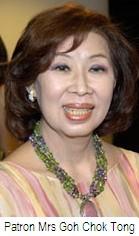
Finally, whatever the transgressions or shortcomings, I want to put on record my deep gratitude for Mr Durai and the NKF and their supporters, including numerous donors, media artistes and volunteers as well as board members and patron.
[Among his supporters were Mrs Goh Chok Tong, the senior minister's wife, who defended Mr Durai's salary, saying,
“For a person who runs a million-dollar charitable organisation, S$600,000 is peanuts as [NKF] has a few hundred millions in reserves.”]Together, they have been tireless in their efforts and contributions all these years to make a difference in the lives of many kidney patients in need.
I do hope that every one of us, including Mr Durai and the NKF, will emerge the stronger, wiser and better from this serious and unfortunate setback.
I am also grateful to all the volunteers and professionals working in the various other voluntary welfare organisations. They too have given tireless and dedicated service of time, effort, money, love and emotions, to the young and old, to those sickly and in need, in their respective worthy causes.
Whatever their faults and foibles, the volunteers, staff and professionals in our VWOs have collectively given hope to many amongst us, and made this island a better place.
In turn, I hope Singaporeans and my fellow men will join me too in supporting them, and show them our generosity and warmth of the human spirit.
Many drops an ocean make, and many hands will lighten the load. On my part, I will continue to donate to the NKF and other favourite charities.
 The ruling People's Action Party emerged victorious in Cheng San in the 1997 elections, though with just 54.8% of the vote.
The ruling People's Action Party emerged victorious in Cheng San in the 1997 elections, though with just 54.8% of the vote. 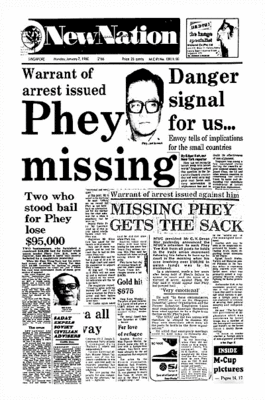 Tan was the student leader of the University of Singapore Student’s Union (USSU) in 1975 when he was caught up in the workers’ labour problems at American Marine. His nemesis was Phey Yew Kok, Secretary General of Pioneer Industries Employee’s Union (PIEU). Tan found himself jailed for 6 months for 'rioting' even though he was nowhere near the office where he was supposed to have 'broken some chairs' -- but the word of Phey Yew Kok, then PAP MP, now a fugitive in Taiwan, carried the day. The judge chose to believe Phey.
Tan was the student leader of the University of Singapore Student’s Union (USSU) in 1975 when he was caught up in the workers’ labour problems at American Marine. His nemesis was Phey Yew Kok, Secretary General of Pioneer Industries Employee’s Union (PIEU). Tan found himself jailed for 6 months for 'rioting' even though he was nowhere near the office where he was supposed to have 'broken some chairs' -- but the word of Phey Yew Kok, then PAP MP, now a fugitive in Taiwan, carried the day. The judge chose to believe Phey. 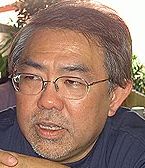 WP requested for these 4 workers to be his witnesses.
WP requested for these 4 workers to be his witnesses.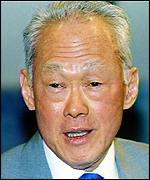 The thesis claims to be an attempt to "advance their understanding of Singapore's idiosyncratic version of multiracialism by casting new light on the thinking of its primary architect, Mr Lee Kuan Yew."
The thesis claims to be an attempt to "advance their understanding of Singapore's idiosyncratic version of multiracialism by casting new light on the thinking of its primary architect, Mr Lee Kuan Yew."  Finally, whatever the transgressions or shortcomings, I want to put on record my deep gratitude for Mr Durai and the NKF and their supporters, including numerous donors, media artistes and volunteers as well as board members and patron.
Finally, whatever the transgressions or shortcomings, I want to put on record my deep gratitude for Mr Durai and the NKF and their supporters, including numerous donors, media artistes and volunteers as well as board members and patron.
 On Day One of NKF's defamation suit against Singapore Press Holdings (SPH), for an article by senior correspondent Susan Long published on April 19 2004, which stated that a $900 gold-plated tap had been installed and later replaced in the private bathroom of his penthouse office suite, on the 12th floor of the $21 million building, Mr Durai, under questioning by Senior Counsel Davinder Singh, admitted he had flown first class on some airlines.
On Day One of NKF's defamation suit against Singapore Press Holdings (SPH), for an article by senior correspondent Susan Long published on April 19 2004, which stated that a $900 gold-plated tap had been installed and later replaced in the private bathroom of his penthouse office suite, on the 12th floor of the $21 million building, Mr Durai, under questioning by Senior Counsel Davinder Singh, admitted he had flown first class on some airlines. 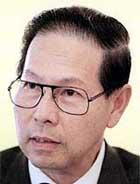 OTC: At the first opening of parliament after I was elected, I was given a speech prepared by the government. I read the speech carefully. Besides ceremonial functions, it said that I'm supposed to safeguard the reserves and to help society become more compassionate and gracious. So I decided that, well, if that is what is said in the speech, then that's going to be my job. And I am going to do it. That's what I tried to do. In fact, during the six years I was president, I was very busy.
OTC: At the first opening of parliament after I was elected, I was given a speech prepared by the government. I read the speech carefully. Besides ceremonial functions, it said that I'm supposed to safeguard the reserves and to help society become more compassionate and gracious. So I decided that, well, if that is what is said in the speech, then that's going to be my job. And I am going to do it. That's what I tried to do. In fact, during the six years I was president, I was very busy.